In the current, as of this publishing date, Intel Xeon Scalable lineup the Intel Xeon Gold 6248 is a very high-end offering. It has 20 cores and high clock speeds which make it ideal for plenty of applications. For many trying to balance core counts, per-core performance, and cost, the Intel Xeon Gold 6248 makes a lot of sense, especially in 4-socket servers such as the recently reviewed Supermicro 2049P-TN8R 4P scale-out server. In our review, we are going to look at what the processors have to offer.
Key stats for the Intel Xeon Gold 6248: 20 cores / 40 threads with a 2.5GHz base clock and 3.9GHz turbo boost. There is 27.5MB of onboard cache. The CPU features a 150W TDP. These are $3072 list price parts. Here is the ARK page with the feature set.
Here is what the lscpu output looks like for an Intel Xeon Gold 6248:
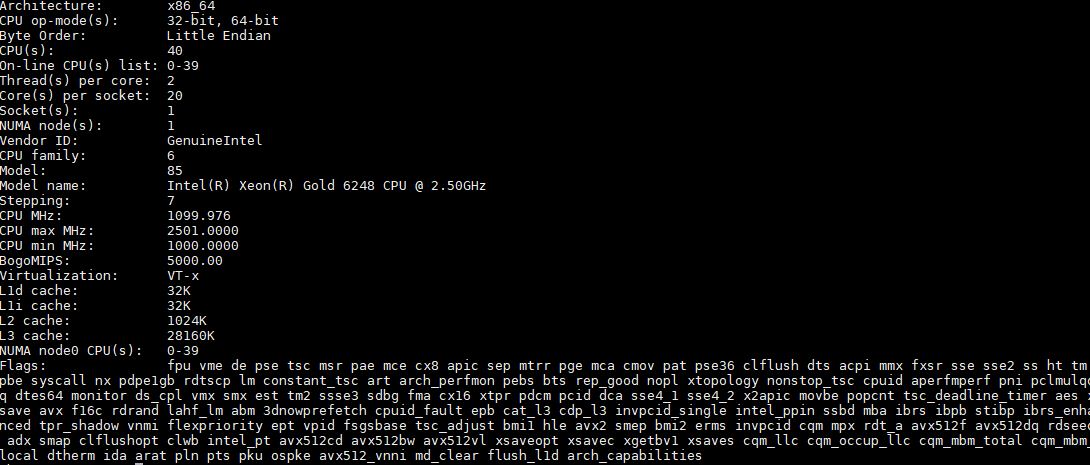
With a 150W TDP, these processors also balance power consumption with core count, much like the Intel Xeon Platinum 8276.
There are other features of the Intel Xeon Gold 6248 that are important. The chips can operate in single, dual, and quad-socket configurations. They support Intel’s higher-end Xeon RAS features. Another key feature is that these chips support Intel Optane DCPMMs, albeit at lower capacities since they are not “L” SKUs. Most likely we would see the Gold 6248’s paired with 128GB DCPMM modules due to the 1TB memory capacity limit.
As a quick note here, in our benchmarks, we are going to focus on single-socket results. We have a broader set of CPUs tested in single versus dual and quad-socket configurations so we felt that it provided a better context.
Intel Xeon Gold 6248 Test Configuration
For our 2nd Generation Intel Xeon Scalable CPU single-socket reviews, we are using the following configuration:
- System: HPE ProLiant DL360 Gen10
- CPU: Intel Xeon Gold 6248
- RAM: 6x 32GB DDR4-2933 ECC RDIMMs
- Storage: 1x Intel DC S3700 400GB
- PCIe Networking: Mellanox ConnectX-3 HPE FlexLOM dual-port 40GbE
The Xeon Gold 6248 supports the maximum DDR4-2933 memory speeds of this Xeon generation. We covered the test system in more detail in our article A New STH 1P 2nd Gen Intel Xeon Scalable Test Platform including the process we went through to select the heatsinks and fans.
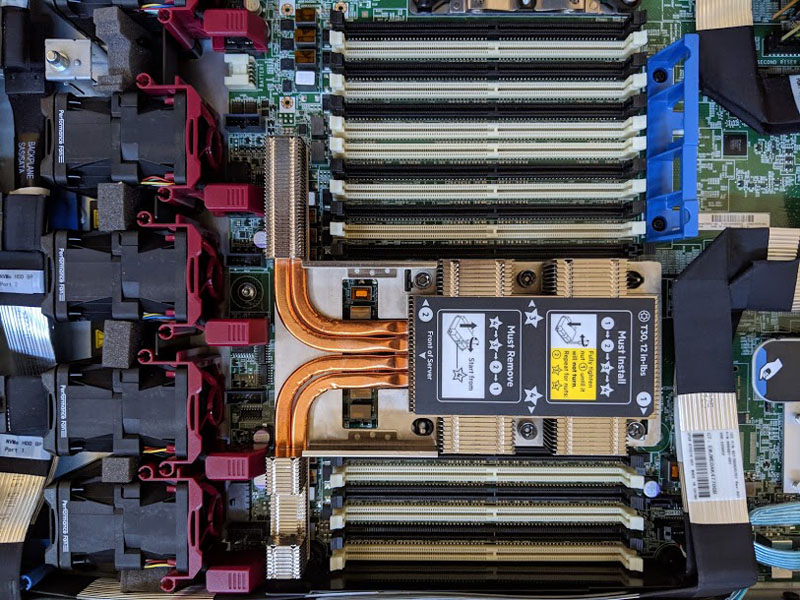
One will notice that we are using the high-performance heatsink here with the high-performance fans. That is to ensure that even though we are using a 1U server, we have enough cooling capacity for our testing. If you purchase a new ProLiant DL360 Gen10 you will likely get a standard heatsink which is more than ample to cool a low-power part like this. You can see the difference between the high-performance and standard HPE ProLiant DL360 Gen10 heatsinks here:
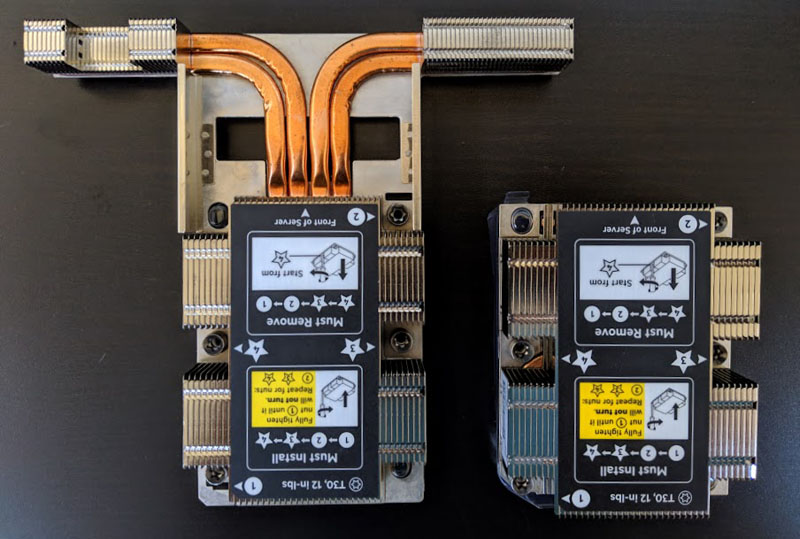
Next, we are going to take a look at our Xeon Gold 6248 benchmarks. We are then going to conclude with our market comparison and final words on the processors.


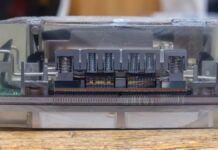
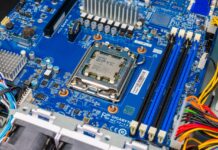

That chart is great for those who need to look into getting Xeons for some reason, thanks!
I’ll stick with Rome though!
High speed 10 years ago. Intel is getting is lunch eaten by amd.